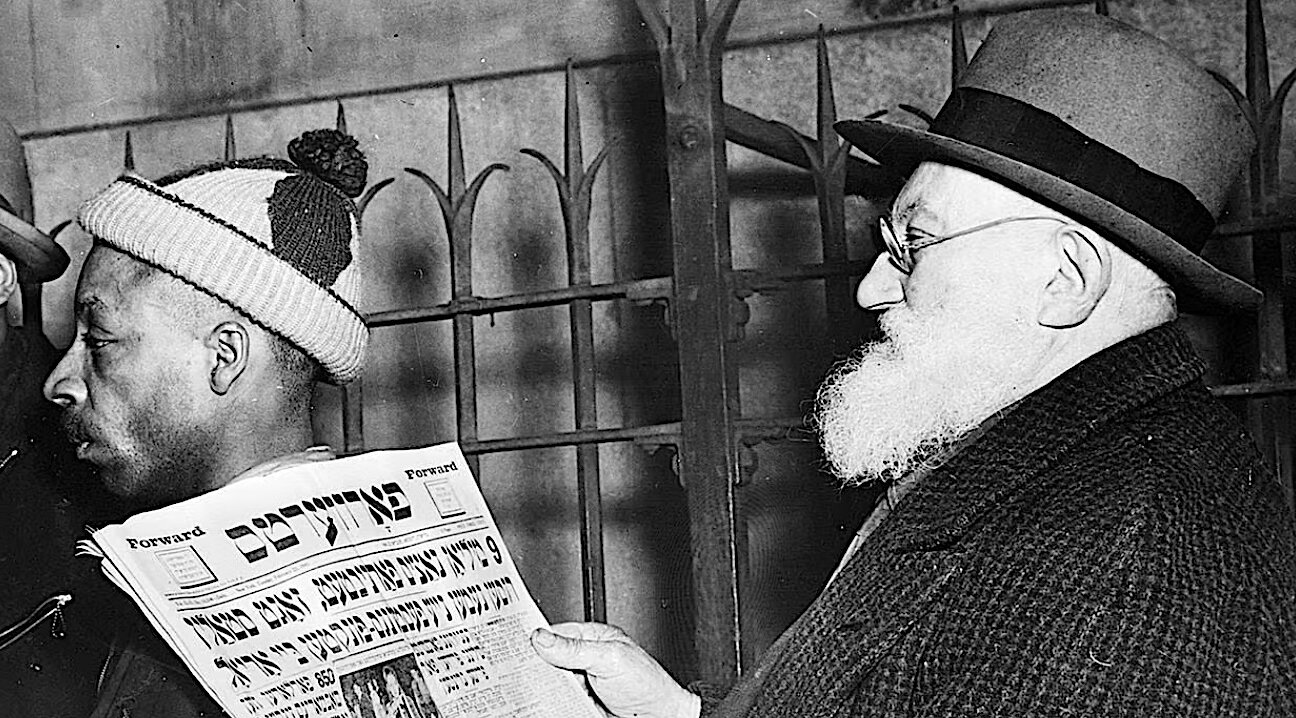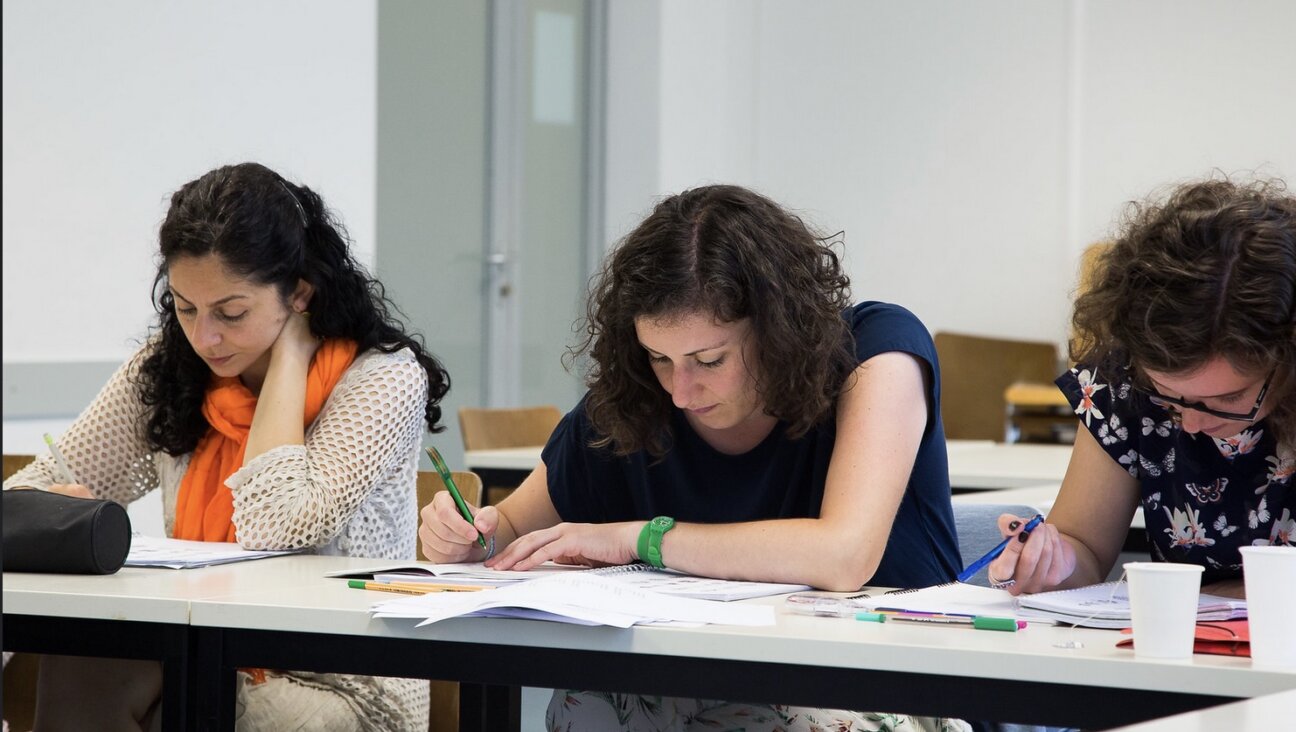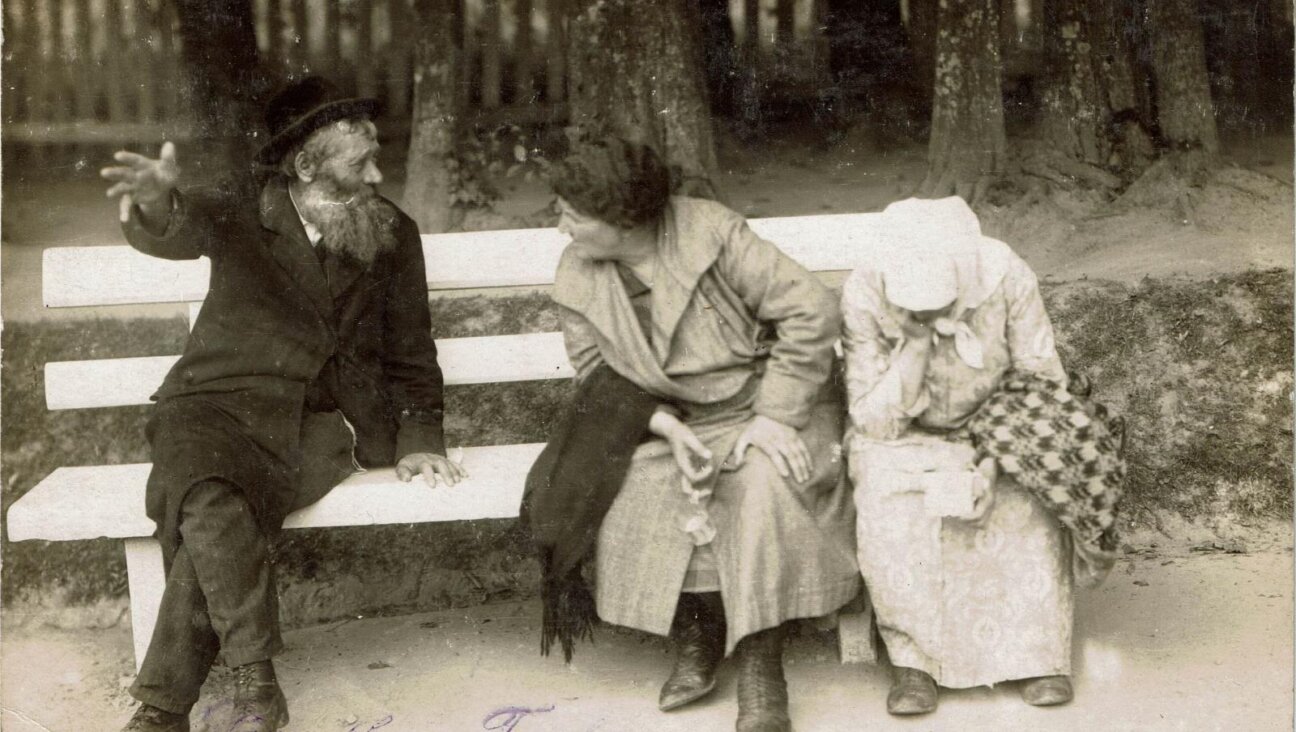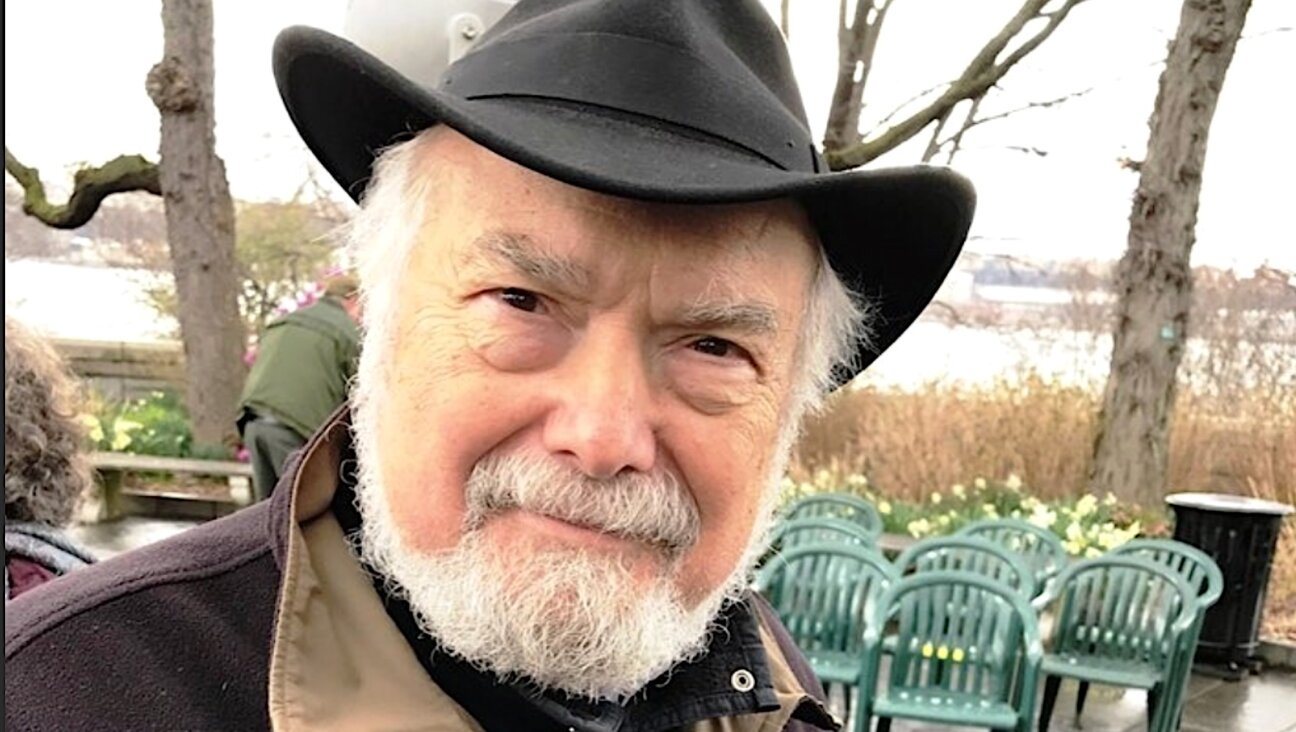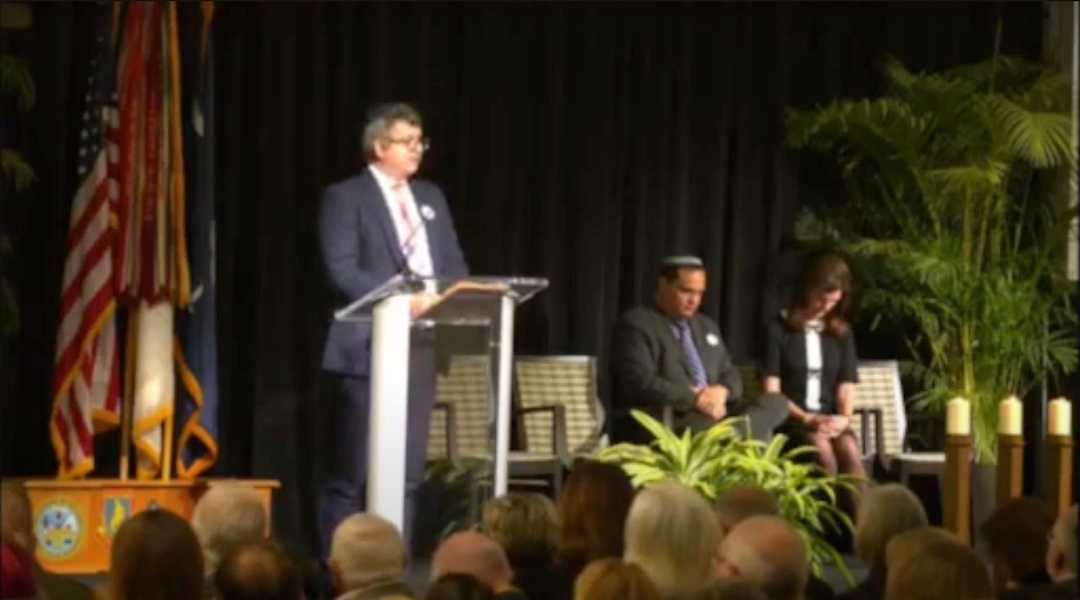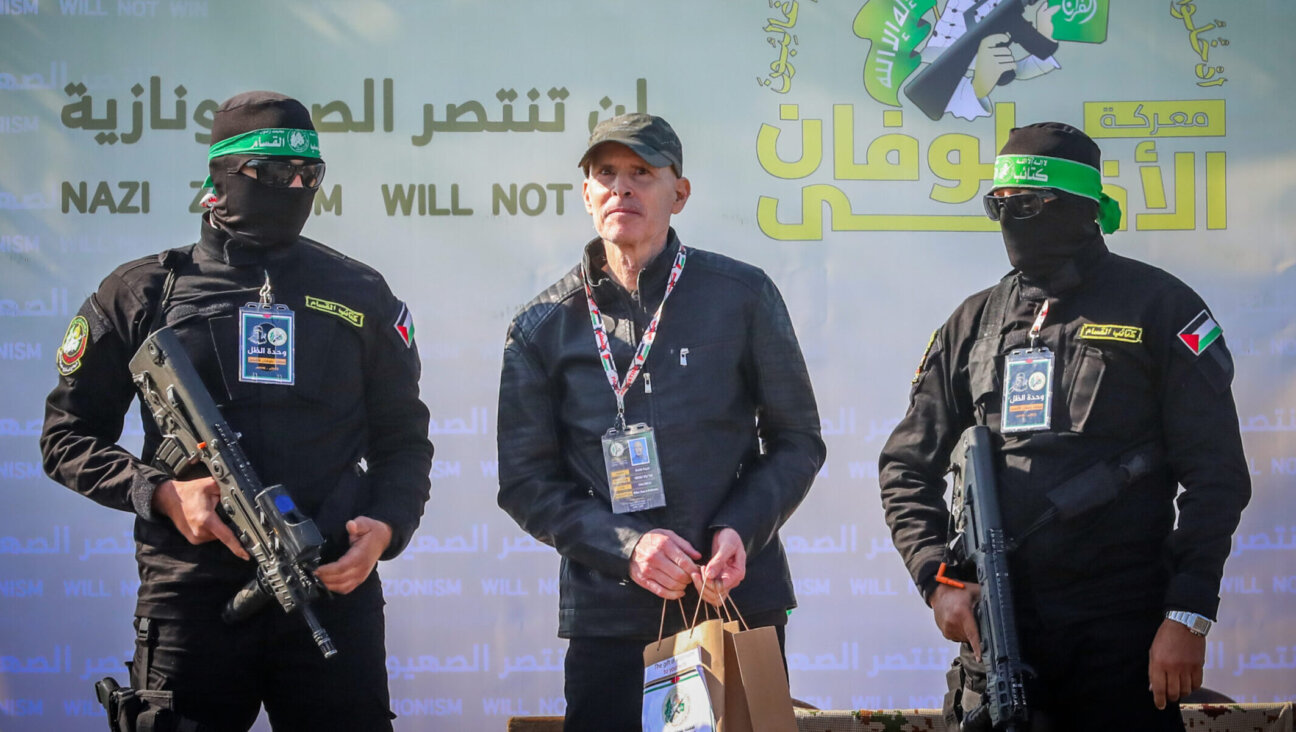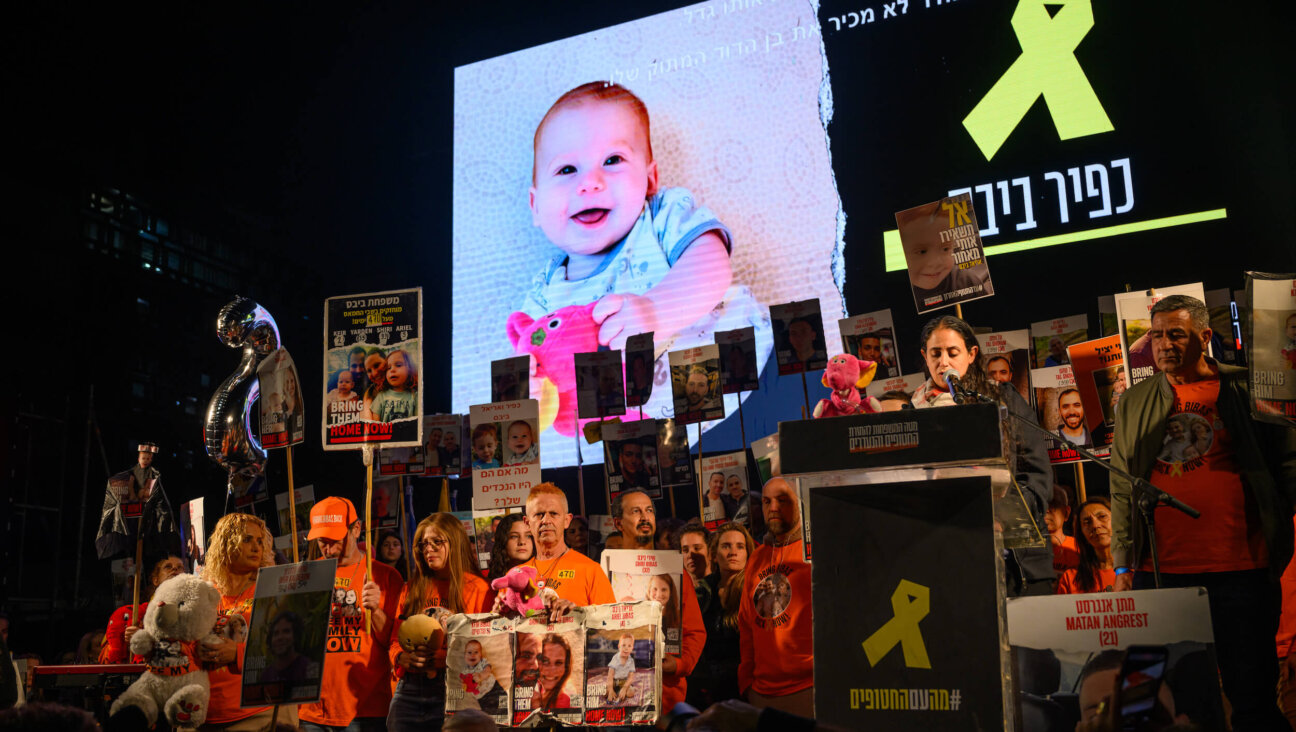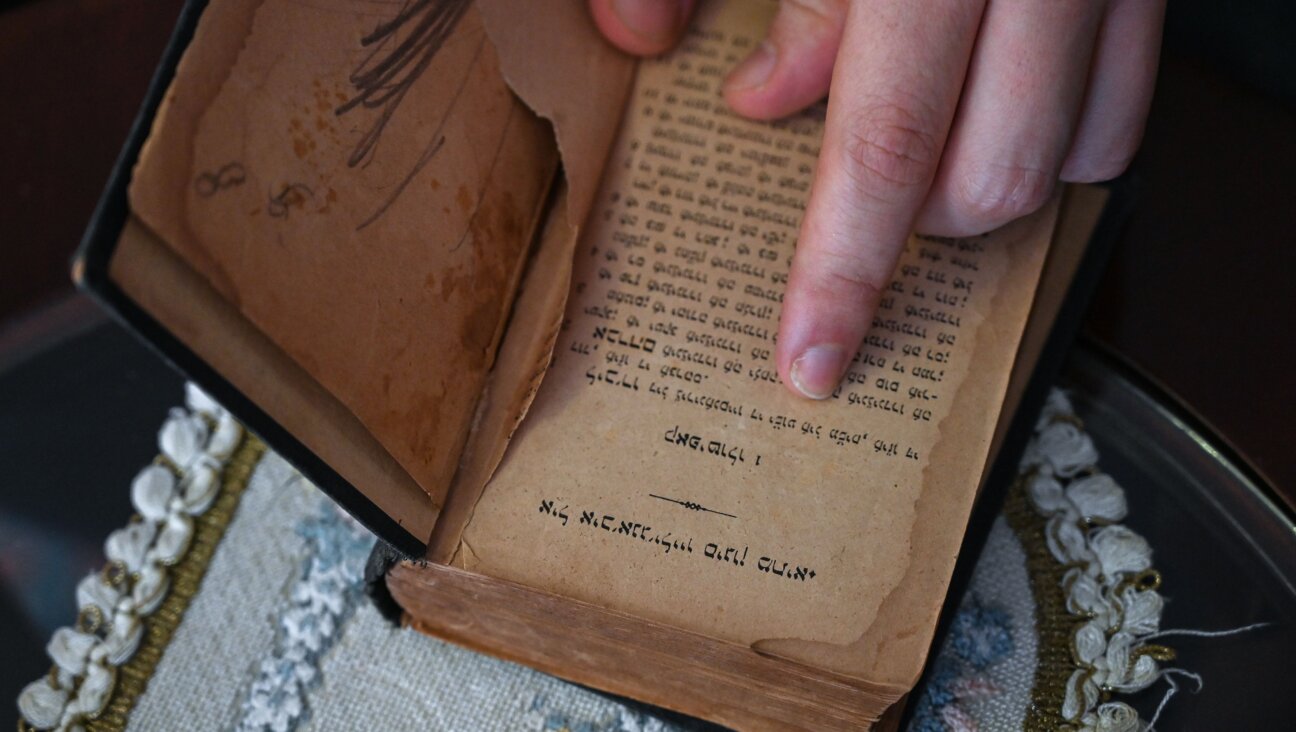Despite his ALS – he manages to study Talmud daily

Chaim Reznik studies Talmud daily in Tzfat Image by Reznik family
This article originally appeared in the Yiddish Forverts.
Here in New York, we‘ve seen a steady stream of coverage about the Siyum Hashas celebration held at Metlife stadium this past week — marking the completion of the seven-year cycle of daf yomi, daily Talmud study.
In Jerusalem, the event was marked with a special celebration for English speakers. The audience there was considerably smaller but in the middle of the program – between the words of Torah and blessings by prominent rabbis – something unexpected occurred, connected to my own family.
My sister, Eydl, lives in the city of Tzfat, in northern Israel, with her husband, Chaim, where they raised seven children and now have thirteen grandchildren. Sadly, Chaim suffers from ALS, a progressive nervous system disease that affects nerve cells in the brain and spinal cord, causing loss of muscle control and total paralysis, although the mind is still alert. Today, Chaim can only move his eyes.
Eydl has done everything possible to keep him alive: He’s now attached to a feeding tube and respirator, and his family, together with volunteers and paid assistants, care for him at home instead of a hospital or other institutional setting where he could easily contract a deadly infection. Thanks to Eydl’s selfless devotion and the help of her children, neighbors and workers, Chaim is, despite his ALS, in relatively good health.

Chaim Reznik studies Talmud daily, despite his ALS. Image by Reznik family
Every day, Chaim’s Talmud study partner comes over and learns a page of the Talmud with him. This was why the family decided that it would be fitting for Chaim to attend the Siyum Hashas celebration in Jerusalem. Transporting him in his portable bed, with all his medical equipment, would have been very challenging (although he did attend all his children’s weddings) but it recently became easier after the family received a special large vehicle that has room for all the medical equipment. Thanks to the car, they were able to bring him to the Siyum. He was brought into the auditorium where he and his medical team stayed close to the door just in case they would need to suddenly take him outside.
The evening began with greetings and words of Torah from rabbis. Then, Rabbi Mordechai Kornfeld, announced that he would recite the mi sheberekh, the prayer for healing the sick, and would pause in the middle of the prayer to allow people to insert their own list of names of ill relatives or acquaintances. (In a mi sheberekh, the person‘s Jewish name is used together with his or her mother‘s name.)
As he recited the prayer, Kornfeld mentioned his mother’s name. Ten seconds later, to the complete surprise of my sister and her family, he suddenly whispered Chaim‘s name, Chaim Yitskhok ben Gitl. When he finished the prayer, the moderator of the event added: “Before I go further, I want to address a special point; that as I was approaching the lectern tonight I discovered that in this crowd there is a special person, Reb Chaim Yitskhok Reznik from Tzfat, who is an ALS patient and for seven and a half years he has been struggling tremendously with his health. Nevertheless, he so much wanted to join our siyum hashas and so he made the very complex journey, together with his medical team, to be here tonight. He himself is in the second cycle of learning the daf. He is seated next to the exit. I would appreciate if everybody gave him a standing ovation.”
Seeing the entire audience stand up, applaud and turn to Chaim brought tears to my eyes.
What mattered here was not a person’s health, or physical ability, or talent — but rather his spiritual determination, and the selfless support he receives from those around him, to help him live out his years with meaning, no matter what the limitations.
Rukhl Schaechter is the editor of the Yiddish Forverts. If you’d like to lend support for her brother-in-law’s care, you can send a donation to the Chasdei Reznik Fund #3308 through the Vaad Harabonim in Israel.
A message from our Publisher & CEO Rachel Fishman Feddersen

I hope you appreciated this article. Before you go, I’d like to ask you to please support the Forward’s award-winning, nonprofit journalism during this critical time.
At a time when other newsrooms are closing or cutting back, the Forward has removed its paywall and invested additional resources to report on the ground from Israel and around the U.S. on the impact of the war, rising antisemitism and polarized discourse.
Readers like you make it all possible. Support our work by becoming a Forward Member and connect with our journalism and your community.
— Rachel Fishman Feddersen, Publisher and CEO








